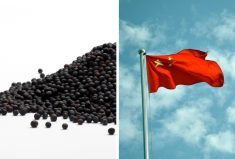Glacier FarmMedia assembled a team of reporters from its network of publications, which includes the Manitoba Co-operator, to examine the implications of Canada’s new trade deal with the European Union on Canadian agriculture and food processing. In coming weeks, watch for a series of articles that zero in on the challenge Canadian agriculture faces turning this new market potential to market share.
The long-awaited, complex and deeply controversial Comprehensive Economic and Trade Agreement (CETA) could become a reality in 2017, provided the EU’s member countries and Canada’s Parliament ratifies it later this year.
Read Also

Mazergroup’s Bob Mazer dies
Mazergroup’s Bob Mazer, who helped grow his family’s company into a string of farm equipment dealerships and the main dealer for New Holland machinery in Saskatchewan and Manitoba, died July 6 from cancer.
With it, will come unprecedented tariff-free trade with the world’s largest single market, plus improved access for Canadian companies to European buyers of agricultural products.
The EU is Canada’s second-biggest trading partner after the U.S. The agreement is expected to increase trade in goods and services between the EU and Canada by nearly a quarter. By eliminating nearly all import duties, exporters on both sides are expected to save millions of dollars.
So what does this mean for Canadian growers and producers? If farmers do want to invest in Europe, how easy will it be to navigate regulations, cultural differences and the lack of awareness within the EU of many Canadian product lines?
Glacier FarmMedia reporters in Canada and Europe address this question and others in a series of special reports on CETA. Our team spent four months tracking developments to assess the true potential of CETA for Canada’s agricultural community.
Not surprisingly, the Glacier FarmMedia team found widely divergent attitudes towards the deal.
For some it’s a high-end market, with loyal buyers, provided Canadian exporters do their homework.
Others see the European Union as a bastion of protectionism. “It wants to grow everything itself,” we were told by one highly placed grain industry executive.
“It sounds like we’ve got an opportunity to put Canadian beef in Europe but we don’t and we never will,” echoed a feedlot operator.
Read our related stories and watch for our upcoming online videos. Tell us what you think the deal means for your farm.


















